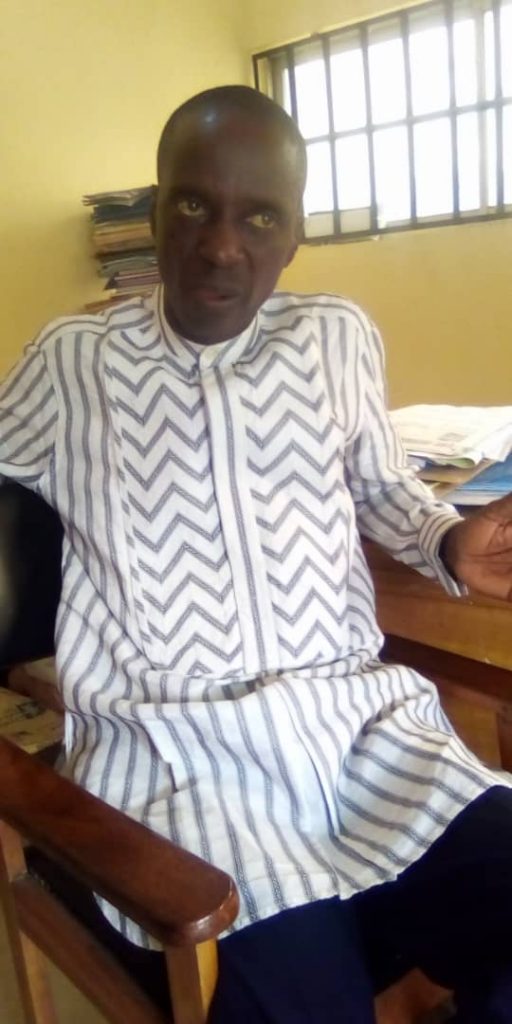In this concluding part of the interview, Uwem Jonah Akpan, a Ph.D holder in African History/International Studies from the University of Calabar and author of Ikono- The Cradle of Ibibio Nation: A refutation and other books dropped a bombshell: the ancestors of Nnamdi Kanu, IPOB Leader, migrated from Ibiaku in what is known today as Akwa Ibom State to Ibeku in Abia while Aba was part of Akwa Ibom in the olden times.
Excerpts:
Now the book- Ikono The Cradle of Ibibio Nation: A refutation- has gone into the public domain. How is the perception?
Apart from the early Ikono antagonistic monarch book, it was published for the sake of empire building or what I call internal imperialism or what I call g-money. There was no basis for that book. Apart from making a section of the Ibibios appear as primus inter pares over the rest, as for the basic rules and principles of writing history, they did not follow it. So, the book is well received. This is what happens in scholarship. I wrote this book after intensive research, gave it to a professor of history to vet. He vetted the work and wrote the foreword, which is well applauded. I made a public presentation which I did. Another senior colleague of mine reviewed it publicly and gave my book a clean bill of health, said it is recommended to the public.
Even those against it cannot counter the substance of the book. I still stand firmly to say that all the Ikono people that you find, Ikot Oku Ikono is their ancestral home in Uyo Local Government Area. This is where they dispersed from. This is the written record that the colonial officers left. That is what tradition tells us. If you go to Ikot Oku Ikono area, that is where you will see all the deities in Ibibio land, whether Etefia Ikono, Itina Iman there. Within that proximity, you will see Anantia Ibiono, Abam Itak, Ukana Offot, Awa Itam, Afia Ndem Etoi. What Ibibio call Obio is the capital of Obio Ibiono, Obio Etoi, Obio Iman, Obio Nsit, Obio Offot and all that.
The colonial records clearly tell us that there was a problem that triggered that migration, when they moved. Their next place of habitation was Ikot Idaha along present day Uyo-Ikot Ekpene Road. I went there for research. The village head told me the same thing. The report said that from there, they moved to Mbiok Okok. I went to Nung Ukim Ikot Etefia. I discovered that the founder of Nung Ukim Ikot Etefia was a hunter from Ikot Mbon called Ikono Akpan Etukudo Ekpenyong Eka Ekpo Udo Afon. I got the information, came to Ikot Mbon Ikono and met the family head of Umoren Udontong Akpan Umoren. That is what he told me all of them came for the public presentation.
They said when Ibibios left Arochukwu, they clustered and congregated at Ibiaku Ntok Okpo. I went to Ibiaku Ntok Okpo; I discovered that those who established Ibiaku Nto Okpo were migrants from Ibiaku Itu Udo from Ibiono and Ibiaku Ikot Edet. So, I have the facts both written records and oral tradition because I approached it from the point of a scholar; I have my evidence.
Apart from this book, you talked about the ancestry of Nnamdi Kanu, IPOB leader, in passing. What is the history of the man?
The thesis of my work is that not all the groups you find in Ikono and Ini are of Ikono extraction as they claim. I say publicly that Ediene is not of Ikono extraction, Itak is a distinct Ibibio group, Ukpom, Itu Mbon Uso, Nkari, and Iwerre.
Now, what I am trying to say is that there are people from the Igbo area that you find in some areas in Ikono and Ini, just like you have some Akwa Ibom people in other parts of the country. And I have cited the Afaha people in Ngwa. You know, Aba, was part and parcel of the present-day Akwa Ibom territory. The people you see occupying Aba came from Owerri area- the Ngwa people.
You see the Itu people, the same thing in Abia side, Umuahia; you see the Ibeku where Nnamdi Kanu comes from. He is an Ibiaku man- the group you call Ibeku in Abia State is the same stock like Ibiaku, Nung Oku, Mbio Oku or Oku people in Akwa Ibom. They were priest. It was by process of migration that they moved there. There was a lot of mingling. If you use ethnographic data or cultural artefacts, they give prominence to Obodom they it Ikorok. If you come to Ibiaku here in Ibiono, they celebrate Ikorok there. If you see their cultural display, look at their culture, it is not the same like the mainstream Igbo. So, they are the same only that we toy with our history.
As I said, I am an Ibibio person and I join in that debate to correct that anomaly- that distortion because it was too monumental. They should understand that matters of academic are best handled at the realm of knowledge and in matters like this, it is the superior argument that wins. The fact of the matter is that I have won the debate, they should understand it, accept defeat and go back to research probably if they go back and research they can counter what I’ve done. For now, I don’t think it calls for this uncivilised way of threats because they should know that I have my fundamental human rights that is protected by the law of the land. Let the committee set up, go in, check my book, compare it and see who is misleading who.

